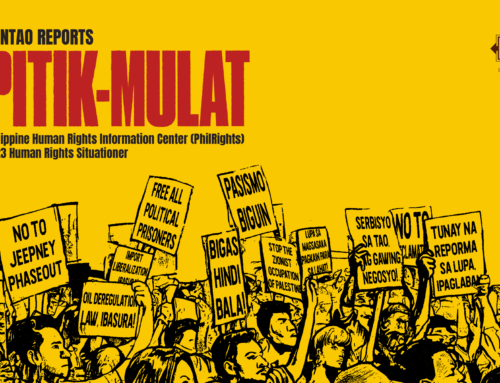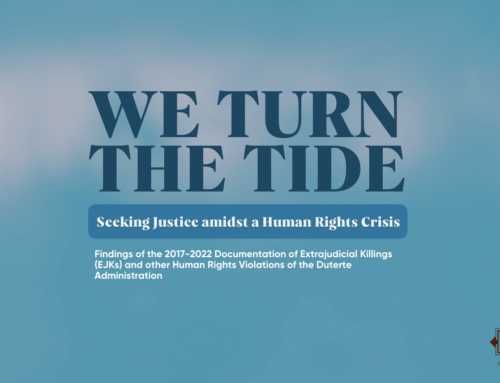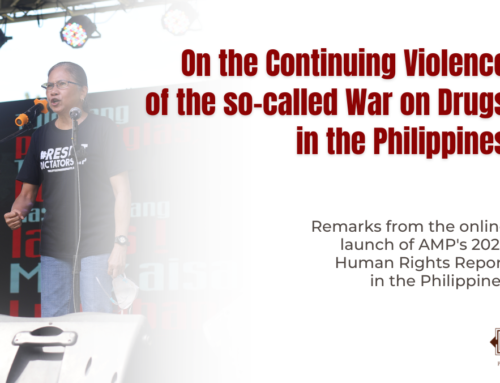(Beirut)– Lebanon failed to enact needed reforms in 2012 to stem abuse during arrest and detention, promote women’s rights, and protect migrants and refugees, Human Rights Watch said today at a news conference for its World Report 2013.
The Lebanese government should make a commitment to improve its human rights record in 2013, Human Rights Watch said. It should establish a mechanism to visit and monitor detention sites, as required under the Optional Protocol to the Convention against Torture, which it ratified in 2008, and amend laws that discriminate against women in citizenship, access to divorce and child custody. It should also continue its open border policy so those fleeing Syria can safely enter Lebanon, and maintain a policy of not deporting anyone to Syria while the conflict there continues. The government should stop detaining Syrian or other refugees for being in the country illegally.
“The Lebanese government and parliament missed opportunities to advance human rights last year by sitting on, or rejecting, key reforms and proposals,” said Nadim Houry, deputy Middle East director at Human Rights Watch. “Candidates for the 2013 elections should make clear where they stand on key human rights issues, and how they intend to follow through.”
In its 665-page report, Human Rights Watch assessed progress on human rights during the past year in more than 90 countries, including an analysis of the aftermath of the Arab uprisings. The willingness of new governments to respect rights will determine whether the Arab uprisings give birth to genuine democracy or simply spawn authoritarianism in new clothes, Human Rights Watch said.
Detainee Rights
A number of people – refugees, migrants, drug users, LGBT people and sex workers – told Human Rights Watch that security force members tortured or otherwise mistreated them during 2012. Some said they were mistreated during an arrest and others in detention facilities including the General Security detention facility in Adlieh, and the Hobeish police station in Beirut, which houses the Internal Security Forces’ (ISF) vice squad. The most common forms of torture they reported were beatings on various parts of the body, with fists, boots, or implements such as sticks, canes, and rulers.
In July, the vice squad arrested 36 men during a raid on a theater suspected of showing pornographic movies, and transferred them to Hobeish police station. There, the men were subjected to anal examinations, conducted by forensic doctors on orders of the public prosecutor, ostensibly to “prove” whether the person had engaged in homosexual sex.
Such treatment violates international standards against torture. The Lebanese Doctors’ Syndicate denounced the examinations as a form of torture, and issued a directive in August calling on doctors not to conduct them. In September, Justice Minister Shakib Qortbawi called for an end to the anal examinations.
In August, ISF arrested 14 Sudanese refugees and asylum seekers taking part in a sit-in in front of an entrance to the United Nations High Commissioner for Refugees (UNHCR) office in Beirut, to protest the refugee agency’s handling of their cases. The refugees reported that ISF officials kicked, insulted, and threatened some of them during arrest, and that when the group arrived at the General Security detention facility in Adlieh, some of them were beaten, humiliated, and threatened, including with deportation.
The Justice Ministry responded to a letter from Human Rights Watch detailing the accounts of abuse. It said its internal inquiries indicated that force was indeed used in two of the three cases of alleged physical abuse, but that in one case it was to subdue a mentally ill detainee who was attacking security forces, and in the other to quell a prison riot. The ministry denied that the third case of abuse took place. The ministry did not address the alleged threats of deportation or explain what steps it took, beyond interviewing the released detainees, to investigate the allegations.
In October, members of the Lebanese army also beat at least 72 male migrant workers in the Beirut neighborhood of Geitawi. The soldiers did not interrogate them about any specific incident, but accused them of “harassing women.” In a public statement the Lebanese Army said that it had detained 11 of the migrants, but did not specify the charges against them.
“Abuse by security forces will remain prevalent as long as Lebanon does not punish offenders and put in place mechanisms to monitor detention sites,” Houry said.
Women’s Rights
Lebanese personal status laws, determined by a person’s religious affiliation, have discriminatory provisions that harm women and put them at a significant disadvantage. Women have unequal access to divorce, depending on their religious affiliation, but in all cases less than men, forcing some to remain in abusive marriages, and in the event of divorce, they are often discriminated against when it comes to child custody. In January 2013, a governmental committee rejected a proposal to grant Lebanese women the right to pass their nationality to foreign husbands and children. Parliament has yet to vote on an amended draft of a 2010 bill that is meant to protect women from domestic violence but that has been criticized by women’s rights groups.
Refugee and Migrant Rights
Lebanon has had an influx of Syrians escaping the crisis in their country. By mid-January, 151,602 Syrian refugees had registered with UNHCR, with an additional 67,061 waiting to be registered. Registration does not grant Syrians legal status, only a right to receive assistance. As a result, they are at risk of detention and possibly deportation. While it has kept its borders open, Lebanon deported 14 Syrians to Syria in August, four of whom said they feared persecution there. Local media reported however, that in January, Minister of Social Affairs Wael Abou Faour said that the Lebanese government would not deport any refugees back to Syria.
Customary international refugee law and international human rights law require all countries to respect the principle of non-refoulement, which prohibits the forced departure of a person to another country where there is a real risk of persecution, or where the person would be at risk of a serious violation of human rights.
Many Syrian refugees in Lebanon also report feeling insecure, particularly following the kidnappings of Syrians in Lebanon, and other attacks in August in retaliation for the kidnapping of Lebanese Shia by armed opposition groups in Syria. In June, gunmen kidnapped Suleiman Mohammed al-Ahmad, a Lebanese man, in Hisah, Lebanon and transferred him illegally into Syrian custody, He was returned after his relatives conducted a series of retaliatory kidnappings in Lebanon. No one was arrested for the initial or retaliatory kidnappings.
“Lebanon should keep its doors open to Syria’s refugees and ensure their safety,” Houry said. “As the needs of these refugees grow, so should the response of the international community.”
Lebanon has yet to amend its laws to protect the estimated 200,000 migrant domestic workers from excessive work hours, non-payment of wages, and confinement in the workplace, and to adopt policies to stem cases of physical and sexual abuse against these migrants.
In January, the labor minister, Charbel Nahhas, announced that he would look at abolishing the “kafala” system of employer sponsorship, which makes it hard for an employee to leave an abusive employer, but he resigned over unrelated matters a month later. The new labor minister, Salim Jreissati, has yet to put forward legislation or policies to protect the workers.
Powered By WizardRSS.com | Full Text RSS Feed | Amazon Plugin WordPress | Android Forums | WordPress Tutorials







